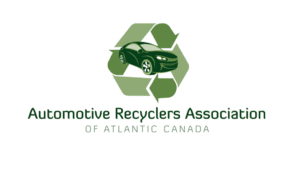By David Gold
I’m on my way home from the Automotive Recyclers Association’s 74th Annual Convention and Exposition as I write this. This was my first convention as President of the ARA. It seems like a good time to reflect on the changing dynamics of the auto recycling industry.
I recall a conversation at last year’s event where we got to reminiscing about how those before us were anxious about the introduction of what were new technologies at the time, like ABS and air bags, and how much of a challenge these would pose.
It was around that period, when vehicles were becoming computers on wheels—in the early 90s—when I first got into the business full time. I grew up wanting to go to the yard every chance I could. Even at a young age I knew there was opportunity and I loved every part of the business.
I still love the business and I never miss an opportunity to attend events like the ARA Convention and network with my peers. These days, though, it’s not necessarily the new technology that has recyclers concerned. Like collision repairers, we’ve adapted to the idea that automotive technology is in constant evolution and we have to keep pace.
Today, it seems like one of our top concerns is what I like to call the 800 lb gorilla in the room. That’s data. Specifically, who controls it and who has access to it. The key strategic pillars that the ARA is focused on seem to have started and stopped with all things data lately, whether its simply access to data or where our data goes and how it gets there. The ARA has put dealing with these questions at the top of our list of tasks.
In addition to data, the strategic partnerships that we will improve and foster are top priorities. Over the years, many vendors to the industry have been helpful and approachable and this goes both ways. A plan is being put together right now to have the brightest minds collaborate consistently going forward.
Prior to the convention, I reached out to a handful of auto recyclers and stakeholders in the industry for their input on what they believe ARA should be focusing on at this time. A number of people, including George Sapir and Sue Schauls, said that we need to prioritize getting OEM VIN decoding info from the manufacturers. I couldn’t agree more. Not having access to this is holding us back and preventing us from providing the best service and parts to our repair customers. This is an issue that should be of concern to everyone in the automotive industry, including those at the OEM level. Some car companies are resistant to the idea, but not all of them.
Chris Daglis of PARTnered Solutions noted that vehicle technology will change the face of our industry over the next 10 to 20 years. As I said earlier, auto recyclers are used to this, but that doesn’t mean we don’t need to change our operations to suit the new technology. Daglis pointed out that we need to consider new part types that we will be able to harvest off vehicles. He thinks engines and transmissions will begin to diminish as major sellers in this period, but that many other tech components will begin to become real opportunities.
That brings us back to data. With the right access, we can continue to serve the repair industry and the public. I’m confident we’ll get there.























